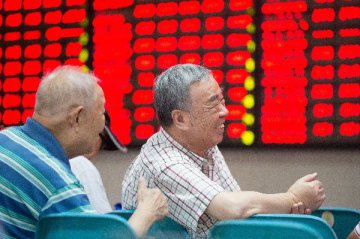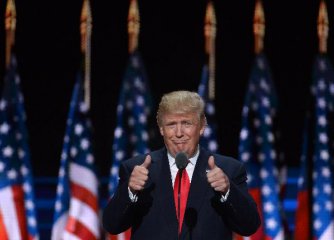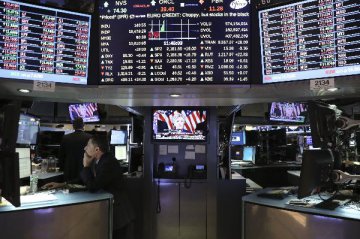
Following Donald Trump's victory in the U.S. presidential election on Tuesday, reactions poured in from across the world. Chinese President Xi Jinping: Both China and the United States bear the special responsibility of maintaining world peace and stability and boosting global development and prosperity; the two share extensive interests.
"I am looking forward to working together with you to expand China-U.S. cooperation in every field, at the bilateral, regional and global levels, on the basis of the principles of non-conflict, non-confrontation, mutual respect and win-win cooperation, with differences controlled in a constructive manner, so as to push China-U.S. relations further forward from a new starting point, benefiting the peoples of the two countries and other countries as well," Xi said.
Russian President Vladimir Putin: Putin "expressed his hope for joint work aimed at steering Russia-U.S. relations out of the crisis, as well as solving pressing issues on the international agenda and searching for efficient responses to global security challenges."
UN Secretary-General Ban Ki-moon: Ban encouraged the United States to stay true to its "unity in diversity." "As a founding member of the United Nations and permanent member of the Security Council, the United States is an essential actor across the international agenda," he said, adding that "now more than ever, we must mobilize around the principles and common values of the United Nations Charter."
European Council President Donald Tusk and European Commission President Jean-Claude Juncker: "Only by cooperating closely can the EU and the United States continue to make a difference when dealing with unprecedented challenges."
NATO Secretary-General Jens Stoltenberg: "It is important that the trans-Atlantic bond remains strong" and that "U.S. leadership is as important as ever."
Salaheddine Mezouar, president of the 22nd Conference of Parties to the United Nations Framework Convention on Climate Change (COP22): Mezouar noted that "we are convinced that all parties will respect their commitments and stay the course in this collective effort," insisting that the presidency of COP22 will continue to pursue progress, particularly with the new U.S. administration.
Japanese Prime Minister Shinzo Abe: Abe reminded Trump of the importance of the Asia-Pacific region, saying its peace and stability are "a driving force of the global economy" that also brings peace and prosperity to the United States.
British Prime Minister Theresa May: The United Kingdom and the United States "are, and will remain, strong and close partners on trade, security and defense." Both countries will build on these ties "to ensure the security and prosperity of our nations in the years ahead."
French President Francois Hollande: Trump's victory in the U.S. election "opens a period of uncertainty." He called for "a united Europe, capable of making itself heard and of promoting policies wherever its interests or its values are challenged."
German Chancellor Angela Merkel: Merkel has offered Trump "close cooperation" on the basis of shared trans-Atlantic values, adding that the partnership with the United States "is a foundation stone of German foreign policy."
Austrian Chancellor Christian Kern: Kern believed that Trump would not implement many of the controversial announcements he made during the U.S. presidential election campaign, and that people would have to wait and see what would happen during the Trump administration.
Danish Prime Minister Lars Loekke Rasmussen: Rasmussen hoped that "the next administration would continue the open and constructive cooperation that has characterized the United States for many years."
Finnish Prime Minister Juha Sipila: The election result indicated that Americans were longing for change. It also reflects the uncertainty caused by globalization, he said. Sipila also hoped that Trump would open new doors to resolve, for example, the crisis in Syria.
Canadian Prime Minister Justin Trudeau: "We look forward to working very closely with President-elect Trump, his administration, and with the United States Congress in the years ahead, including on issues such as trade, investment, and international peace and security."
Mexican President Enrique Pena Nieto: Pena Nieto and Trump had agreed on a meeting to define the future of bilateral relations. "Our teams should...begin to outline a new work agenda which incorporates topics of common interest, such as security, cooperation and the prosperity of our societies."
Brazilian President Michel Temer: "We view positively the message of overcoming national divisions and the search of a constructive compromise with all countries, spoken by Donald Trump in his acceptance speech."
Bolivian President Evo Morales: Morales said he hopes to work with the new administration "against racism, sexism, anti-immigration (and) for the sovereignty of our peoples."
Peruvian Minister of Economy and Finance Alfredo Thorne: "The markets are very worried...due to an unexpected result. They were waiting for the opposition candidate (Hillary Clinton) but the indicators of Peru are very stable and we have all the instruments to anchor our expectations," he said, adding that "things will be fine, we have all manner of presidents in American history."
The Burundian ruling party chief Evariste Ndayishimiye: "We hope that new leaders of the United States will know the real and objective situation of Burundi."






















Latest comments